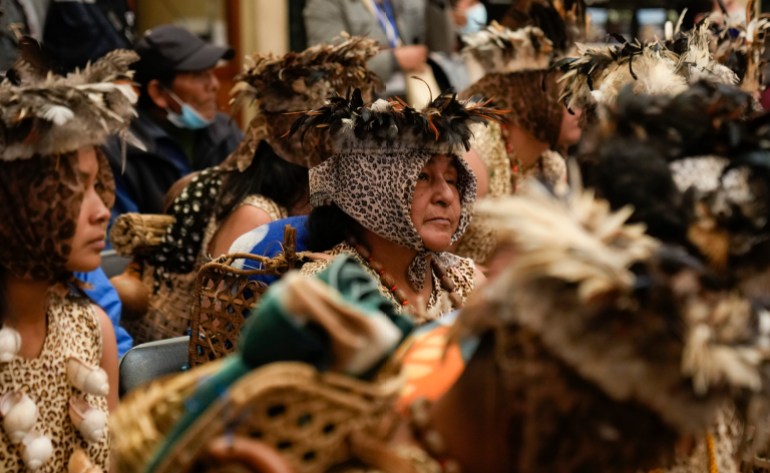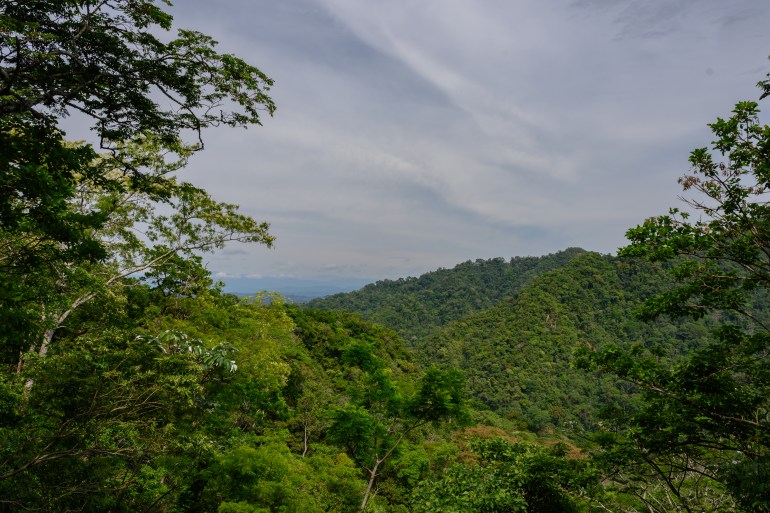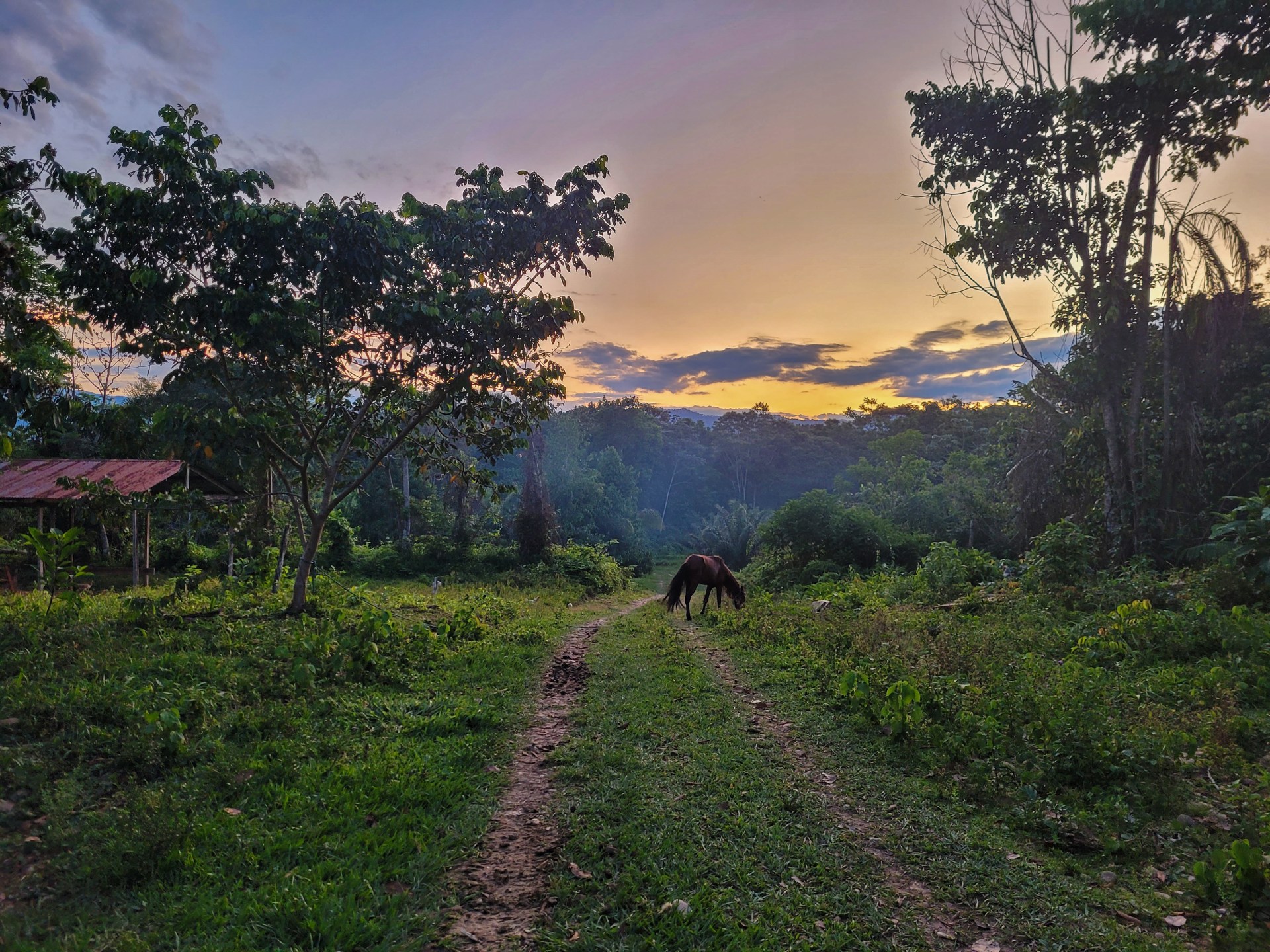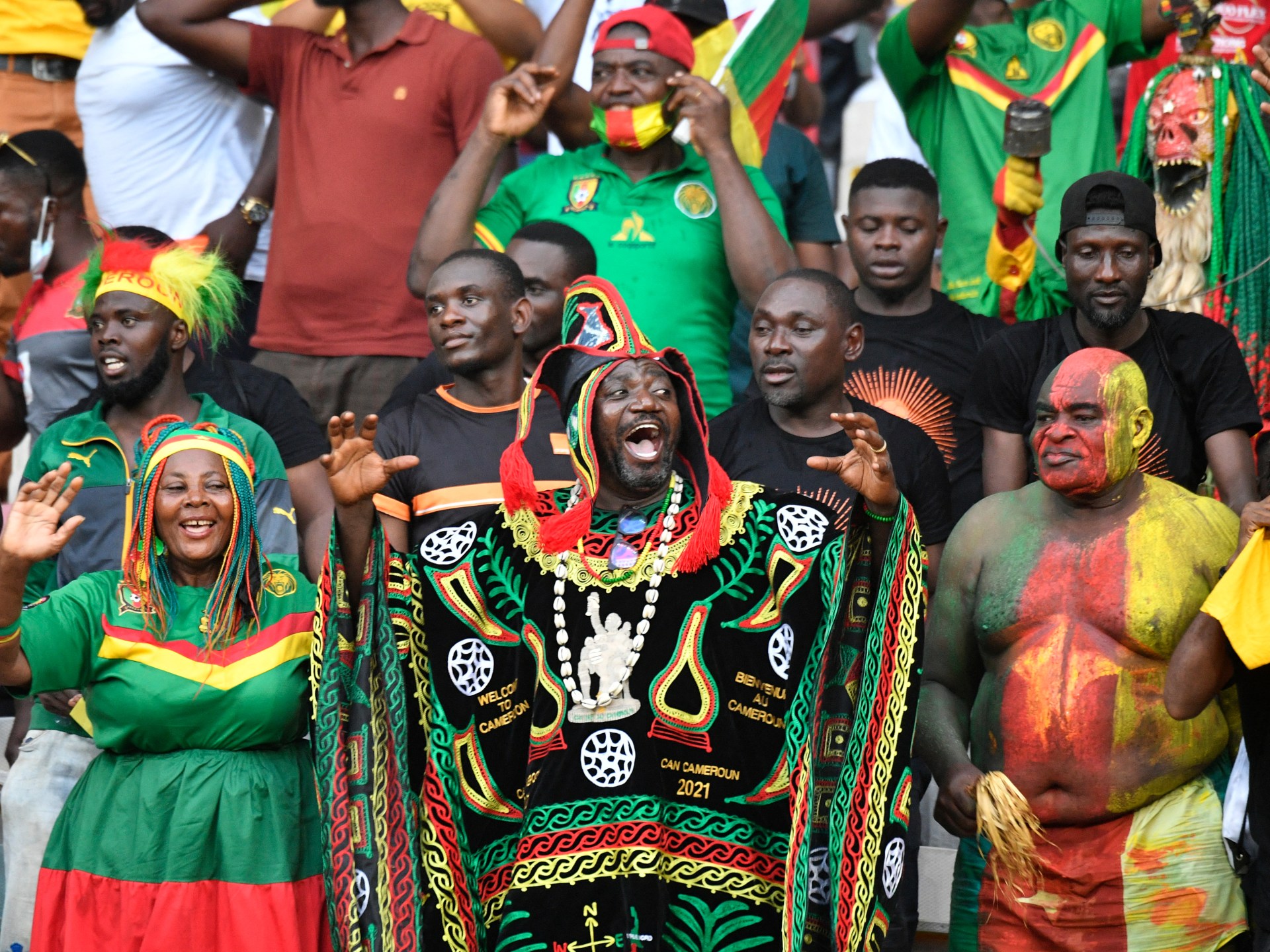Bolivian activists push back against mining industry | Indigenous Rights News
Rurrenabaque, Bolivia – Activist Ruth Alipaz has watched with alarm as the mining industry tightened its hold on protected lands and Indigenous territories across Bolivia.
Late last month, the Bolivian government approved the gold-mining industry’s demands to update the management plans for three national parks: Madidi, Cotapata and Apolobamba. By recognising the rights of miners in these protected areas, the deal drew sharp criticism from opponents and led to debate over the potential environmental fallout.
Amid public pressure, the agreement was annulled days later – but activists say the threat of further encroachment by the mining industry looms large.
“Mining will destroy our territories, will force us to leave,” Alipaz, who is from the San Jose de Uchupiamonas Indigenous community in Madidi National Park, told Al Jazeera. “Our villages will be invaded and filled with other people, and we’ll simply disappear as a culture.”

Bolivia is internationally recognised as the first country to enshrine the rights of nature as equal to human rights, with Indigenous peoples and their territories protected in the constitution. But critics say this is all just rhetoric, as threats to Indigenous lands continue to mount.
The government’s recent concessions to the gold-mining industry – which activists say has already illegally infiltrated at least half of the country’s national parks – were quickly rejected by Indigenous and environmental groups, who note that the livelihoods of entire communities depend on the health of these protected areas.
“[The agreement] facilitates the entry of mining in areas that, until today, protect the cultural, religious and natural heritage of the country,” the College of Biologists of La Paz and several other professional organisations noted in a statement before the deal was annulled.
According to Alipaz, Bolivia’s National Service of Protected Areas (SERNAP), a government agency, “has become an operational arm of extractivism”.
‘Flexible’ legal framework
Madidi, Cotapata and Apolobamba are home to dozens of Indigenous communities, where thousands of residents depend on the natural environment for their lives and livelihoods. Many are concerned about the effects of ongoing illegal mining, with an estimated 85 percent of mining cooperatives across Bolivia falling into this category. Along with large-scale deforestation, mining activity can pollute rivers with toxic mercury, threatening the health of local communities.

Before last month’s agreement was annulled, SERNAP’s executive director, Teodoro Mamani Ibarra, told members of the media that its aim was to curb illegal mining and institute new controls – although it was not clear exactly how this would be done. He rejected criticisms that the deal would open up three of the country’s national parks to exploitation, telling reporters: “Regarding the environmental issue, the care of our protected areas, we are going to demand that [mining cooperatives] comply with the current regulations.”
Under existing regulations, he said, miners are allowed to work in protected areas, provided they were already operating in those locations before they became protected. While the three parks have been protected for decades, activists say there is no publicly available information on which miners would be considered part of the “already operating” category.
Neither SERNAP nor the Bolivian environment ministry responded to Al Jazeera’s requests for comment on the matter.
Environmental groups, meanwhile, dispute the contention that the October agreement would have instituted stricter controls on mining. Operations are often set up in secluded areas that are hard for authorities to reach, compounding the difficulty of enforcement operations, which are also plagued by bureaucratic lethargy.

“The legal framework for mining in Bolivia is very flexible and has become increasingly so,” Gonzalo Mondaca, a researcher with Bolivia’s non-profit Documentation and Information Centre, told Al Jazeera. “These mining operations are not obliged to comply with all the environmental protection regulations [amid a lack of monitoring and control] … It is very unusual that, here in Bolivia, mining can be done in a protected area or an Indigenous territory without complying with strict rules.”
As for SERNAP’s assertion that miners who were already operating in protected areas before they became protected can be grandfathered, observers have responded furiously. “It seems a legal contradiction, but also a conceptual one,” Rafael Anze, a representative of the College of Biologists of La Paz, told Al Jazeera. “A protected area is not an area for mining. So how do they have these rights?”
Alipaz also rejected the notion of pre-existing miners’ rights, noting: “We [Indigenous communities] existed here and had these territories long before Bolivia was Bolivia. Therefore, no other right should be imposed.”
Economic and political influence
In annulling the October agreement, the Bolivian government on November 7 signed a new deal with Indigenous representatives, but some activists are worried it is too ambiguous and will not ultimately prevent mining activities in environmentally sensitive areas.

Alex Villca Limaco, an Indigenous activist from the San Jose de Uchupiamonas community, says miners have been “intensifying” their activities inside Madidi National Park since the outbreak of the COVID-19 pandemic, and he is concerned this will escalate further in the days ahead: “[Miners] have achieved another gain with the signing of the [November 7 deal], because … they are granted the opportunity of entering the territories of Indigenous people and protected areas, subject to compliance with regulations,” he said.
Opposition groups have also criticised the government for agreeing last month to a reduced tax levy of 4.85 percent on the gross sale value of gold, further bolstering an already privileged sector. The move still requires congressional approval.
Last year, Bolivia reportedly exported $2.5bn worth of gold, double the figure from the previous year, making it the country’s top export and representing 6.2 percent of gross domestic product (GDP). But that windfall resulted in the payment of just $7m in royalties, or less than 1 percent, according to a Reuters report that cited data from the country’s mining ministry.

Al Jazeera contacted the Federation of Gold Mining Cooperatives of the North of La Paz and Bolivia’s state mining regulator, but neither responded to an interview request.
Mariel Cabero Ugalde, a Latin America expert with the Dutch branch of the International Union for Conservation of Nature, said the crux of the problem lies with the mining industry’s significant economic and political influence in Bolivia.
“Cooperatives have historically been involved in politics in Bolivia, an untouchable political and social power,” she told Al Jazeera. “Governments always take, or have to take, into account the criteria of this group.”
Respecting Mother Earth
Furthermore, since 2014, mining cooperatives have been protected by the controversial Mining and Metallurgy Law, which absolves them from obtaining the consent of Indigenous communities and stipulates that anyone who interferes to prevent mining activities can be prosecuted.
Critics say this law contradicts the Bolivian constitution, which protects Indigenous land rights, as well as national legislation that enshrines rights to clean air and water, and the right of nature “to not be affected by mega-infrastructure and development projects that affect the balance of ecosystems and the local inhabitant communities”.
“Those of us who defend our territories and protected areas are criminalised,” Alipaz said. “Whether a community accepts [mining activity] or not is irrelevant in the end, because of the economic and political power that the miners have.”
Despite these threats, members of the Indigenous community of San Jose de Uchupiamonas in Madidi National Park say they have rejected recent attempts by gold miners to explore within their territory. Even so, community members say they have suffered mercury poisoning amid mining activity further upriver.

Those living here worry about miners offering bribes for access to the land, or targeting their children for exploitation. With mining activity ongoing in the neighbouring town of Mapiri, “there’s a lot of child trafficking”, Fadi Aliaga, a member of the San Jose de Uchupiamonas community, told Al Jazeera. “There are bars and there is a lot of prostitution. As a mother with two girls, I don’t want that to come here, to our town, to destroy us.”
Indeed, as leaders from around the world gather in Egypt this month for COP27, activists are looking for Bolivia’s rhetoric on environmental protection to match its policies, Anze said: “This is what we are asking of the government: coherence and consequence in relation to the law of Mother Earth.”





Pingback: 티비위키
Pingback: kaws rocks | crumpets vape | guava gas strain |springfield farms carts | dmt vape uk | curepen legend og | mad river melts | buy dmt vape pen |kaws rocks weed | boutiq vapes |glo extracts | kaws weed | georgia pie strain
Pingback: aksara178